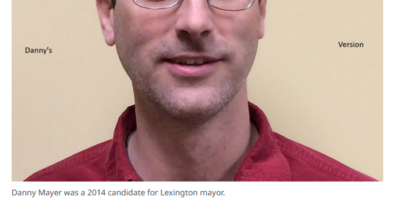By Becca Barhorst
I write this opinion not as an environmental activist, a renewable energy advocate, or a progressive. I write this as a humanist, as we should all be, with a genuine concern for the dangers in which we entrench our people. The explosion of the Upper Big Branch Mine in Montcoal, West Virginia that occurred on April 5 has disturbed me since I read the headline. A mining community that trusts companies like Massey Energy to maintain the safety of their workers was devastated after losing 29 miners, the worst mine explosion to occur since 1970.
Massey Energy Company, the owner of the Upper Big Branch mine, has been repeatedly violating safety standards for nearly two years, exposing live wires, accumulating flammable coal dust, and housing fatal levels of methane. The company, who knew of the problems and failed to fix them, has shown a pattern of infringements on safety regulations. In March of this year alone, Massey Energy was cited for 53 safety violations, according to The New York Times. With the cause of the explosion still unknown, rescue workers described the explosion site as overwhelming, with “railroad lines twisted like pretzels” and “mining machines blown to pieces.” Along with the miners actually killed in the explosion, the rest suffocated from toxic fumes.
Explosions are not the only devastation that Massey Energy is notorious for. In October of 2000, a coal sludge impoundment owned by the company broke in Martin County, Kentucky, spilling the toxic waste into an abandoned coal mine below. The slurry came out of the mine openings, sending 306 million gallons of sludge into the Big Sandy River and several other Ohio River tributaries. The spill was over 5-feet-deep, contaminating nearly 27,000 citizens’ drinking water and killing all aquatic life found in its path. According to the EPA, the Martin County sludge spill is the worst of its kind in American history. However, Massey Energy was still able to proceed with its operations.
It is large companies like this that are using our workers, and not ensuring safety in return. From horribly harmful conditions such as high levels of carbon monoxide, to failure of fixing dangerous problems, the apathy of the coal industry towards the miners and mining communities is unacceptable. With the Mine Safety and Health Administration having an extremely limited power, its industry-friendly appeals process makes even repeat offenders like Massey Energy nearly impossible to shut down. This gives the coal industry liberty to put profits above people, without any real accountability or oversight.
But it is not even just the safety of the workers that the coal industry is taking advantage of; it is the economic draining of mining communities that companies abuse as well. In Appalachian counties, the presence of coal mining is the number one predictor of poverty, as large coal companies exploit our workers and then send the profits elsewhere. One would think that after nearly 150 years of coal mining, there would be some sort of prosperity in the region. It is no wonder then that West Virginia and Eastern Kentucky are home to the poorest, most illiterate counties in the country.
The companies instill fear into the minds of workers, insisting that coal mining is the only industry that will ever be available for a decent salary in the area. However in the last generation, 60% of mining jobs have been lost, as the coal industry replaces the need for a miner with heavy equipment. While in the 1950s the coal industry employed between 125,000 and 145,000 workers, it now employs just over 16,000, or about 1% of Kentucky’s workforce. The industry promises work and prosperity, while at the same time abusing workers’ trust and destroying our environment.
We need to let the coal industry know that they do not dictate our lives. Treating our citizens like marionettes has gone of for far too long, and some harsh regulation and punishment needs to be put into play. The Upper Big Branch mine blast was avoidable, yet was still able to occur because of the laziness of the industry and the lenient policies of the Mine Safety and Health Administration. If we are to allow the coal industry to conduct business in our state, we need to be the ones calling the shots, and demanding some accountability. The abuse we have suffered as a people has gone on for too long, and it is time we take a stand.




lawrence fitton
dear becca:
down to the seam in shifts
songbird whim
headlamp dim
dead air thick
blackrock crypt.
confirm came
open vein
miner’s risk
empty kiss.